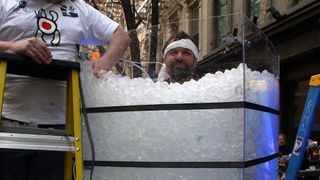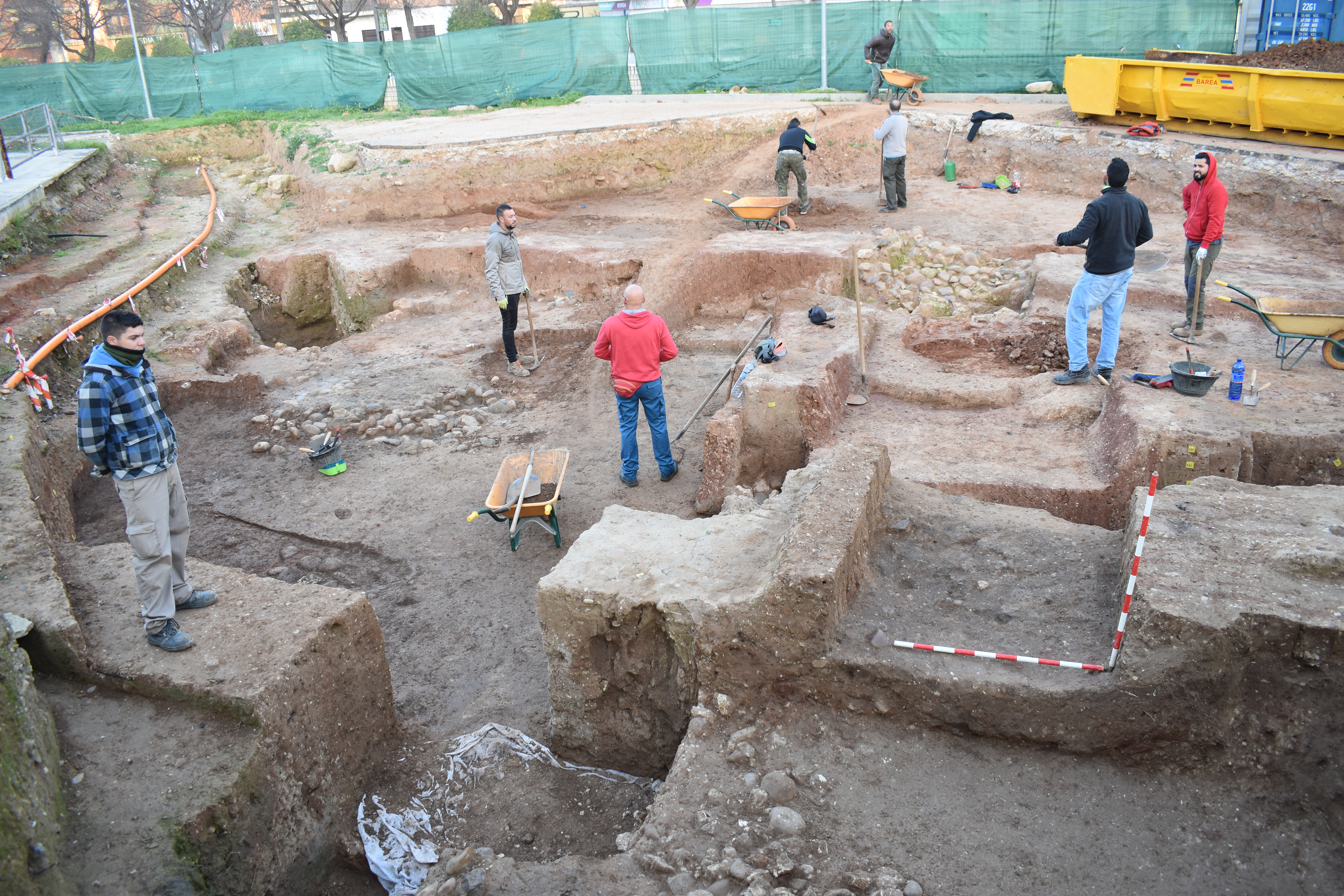
Stephanie Pappas
Stephanie Pappas is a contributing writer for Live Science, covering topics ranging from geoscience to archaeology to the human brain and behavior. She was previously a senior writer for Live Science but is now a freelancer based in Denver, Colorado, and regularly contributes to Scientific American and The Monitor, the monthly magazine of the American Psychological Association. Stephanie received a bachelor's degree in psychology from the University of South Carolina and a graduate certificate in science communication from the University of California, Santa Cruz.
Latest articles by Stephanie Pappas

'Increased evidence that we should be alert': H5N1 bird flu is adapting to mammals in 'new ways'
By Stephanie Pappas published
New research in marine mammals suggests the virus is increasingly adapting to mammalian hosts.
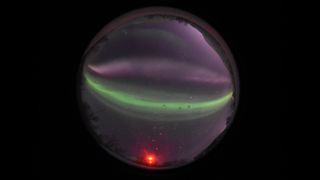
STEVE — the bizarre purple ribbon in the sky — has a 'secret twin' that appears only before dawn, study finds
By Stephanie Pappas published
An atmospheric phenomenon known as STEVE has a secret twin that appears before the break of dawn and flows in the opposite direction, new research finds.
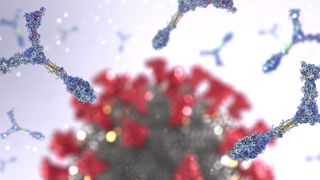
Newfound autoimmune syndrome tied to COVID-19 can trigger deadly lung scarring
By Stephanie Pappas published
A surge in cases of a rare autoimmune disease during COVID-19 waves in England led to the discovery of a new syndrome.
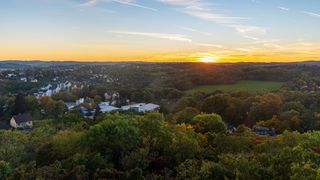
Odd earthquake swarm in Central Europe hints at magma bubbling below the surface
By Stephanie Pappas published
An odd earthquake swarm has struck the region between the Czech Republic and Germany, far from any tectonic plate boundary.
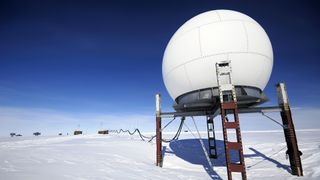
Weird blobs lurking near Earth's core may have been dragged from the surface
By Stephanie Pappas published
A new study of seismic data from Antarctica finds that the mantle may be stranger and more variable than previously believed, with pieces of ancient crust that have been dragged down by tectonic forces.
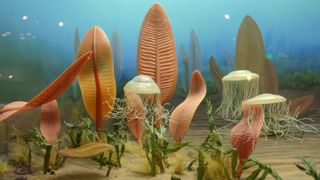
Collapse of Earth's magnetic field may have fueled evolution of life 600 million years ago
By Stephanie Pappas published
The planet's magnetic field may have collapsed around 600 million years ago, enabling a major oxygenation event and perhaps supercharging evolution.
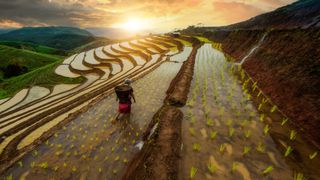
30,000 years of history reveals that hard times boost human societies' resilience
By Stephanie Pappas published
Human societies that experience downturns do a better job of recovering from later disasters, new research finds.
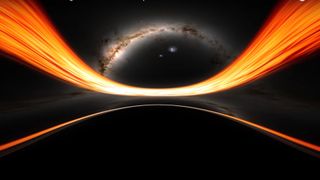
Epic NASA video takes you to the heart of a black hole — and destroys you in seconds
By Stephanie Pappas published
What would it be like to fall past the event horizon of a black hole? A new NASA simulation provides a peek into the bizarre physics of spaghettification.
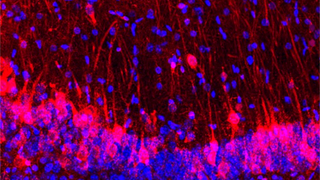
'Frankenstein' mice with brain cells from rats raised in the lab
By Stephanie Pappas published
In recent experiments, rat brain cells filled in for lost neurons in mouse brains, raising new possibilities for growing donor tissues across species.
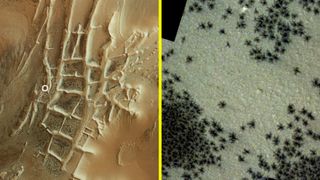
Hundreds of black 'spiders' spotted in mysterious 'Inca City' on Mars in new satellite photos
By Stephanie Pappas published
Every spring, creepy black 'spiders' sprout up on Mars as buried carbon dioxide ice releases dusty geysers of gas. New ESA images show the phenomenon has begun in the strange Inca City formation.
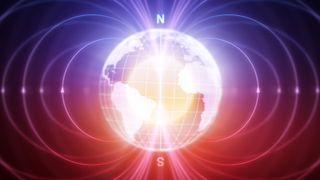
Earth's magnetic field formed before the planet's core, study suggests
By Stephanie Pappas published
The oldest firm age yet for Earth's magnetic field suggests that it developed before a solid planetary core, 3.7 billion years ago.
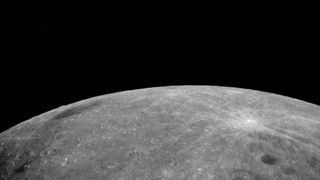
An extra moon may be orbiting Earth — and scientists think they know exactly where it came from
By Stephanie Pappas last updated
The near-Earth asteroid Kamo'oalewa, which orbits alongside our planet as a 'minimoon,' may have originated from Giordano Bruno crater on the far side of the moon, new research suggests.
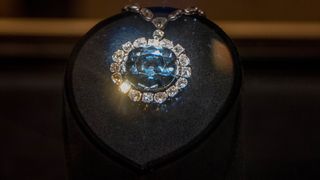
Scientists may have pinpointed the true origin of the Hope Diamond and other pristine gemstones
By Stephanie Pappas published
Researchers suggest that the famed Golconda diamonds, including the Hope Diamond and Koh-i-noor, may have originated from a volcanic outcrop nearly 200 miles from where they were mined.
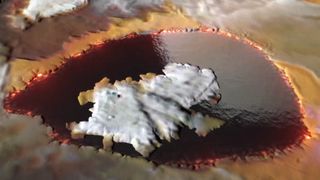
NASA reveals 'glass-smooth lake of cooling lava' on surface of Jupiter's moon Io
By Stephanie Pappas published
The volcanic surface of Jupiter's huge moon Io got a stunning close-up thanks to NASA's Juno mission.
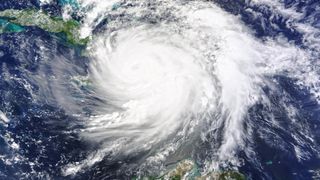
'Uncharted territory': El Niño to flip to La Niña in what could be the hottest year on record
By Stephanie Pappas published
A quick flip from El Niño to La Niña is coming soon, but what does that mean for the U.S.?
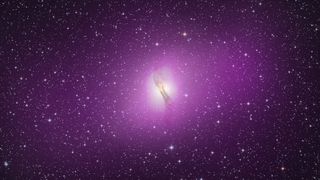
Purple bacteria could be key to finding extraterrestrial life on exoplanets
By Stephanie Pappas published
On many exoplanets, the best clue that life is present may be a purple hue. New research into some of Earth's most extreme bacteria explains why.
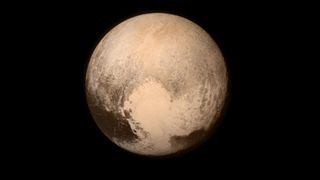
Pluto's huge white 'heart' has a surprisingly violent origin, new study suggests
By Stephanie Pappas published
Tombaugh Regio — the large, pale heart that dominates Pluto's terrain — is made of nitrogen ice that accumulated after a huge, slow-motion impact, new research suggests.
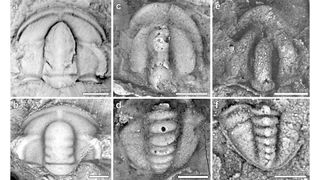
Mass die-off half a billion years ago caused by shifting tectonic plates, ancient rocks reveal
By Stephanie Pappas published
A large extinction in the midst of the expansion of life during the Cambrian period was caused by the tectonics of a supercontinent, new research argues.
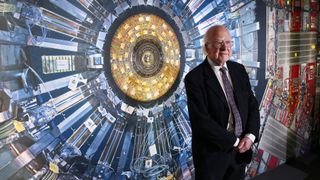
Peter Higgs, Nobel Prize-winning physicist who predicted the Higgs boson, dies at 94
By Stephanie Pappas published
Celebrated theoretical physicist Peter Higgs, best known for predicting the existence of the Higgs boson, has died at the age of 94 after a short illness.
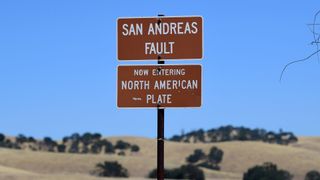
Part of the San Andreas fault may be gearing up for an earthquake
By Stephanie Pappas published
The Parkfield section of the San Andreas fault is sending mixed messages before a time of expected increased seismic risk.
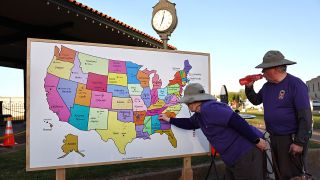
April 8 solar eclipse: What time does totality start in every state?
By Stephanie Pappas last updated
Totality, the moment when the moon completely covers the sun's face, is the climax of a total solar eclipse. Here's what time totality starts in all 13 states where the total solar eclipse will be visible on April 8, and what to expect when the big moment arrives.
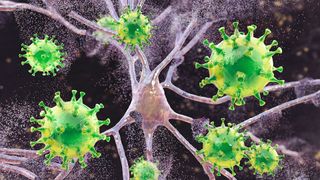
New trial hints at a possible HIV cure approach: Wake up latent virus hiding in the body, then kill it
By Stephanie Pappas published
A clinical trial of a new method to activate and kill HIV in the body shows small success, but it's not yet a cure.

Rare 'super-diamonds' may already exist on other planets, and could be made on Earth, study hints
By Stephanie Pappas published
A simulated form of carbon called BC8, or 'super-diamond', could be 30% tougher than normal diamonds, but synthesizing it on Earth won't be easy.
Get the world’s most fascinating discoveries delivered straight to your inbox.

